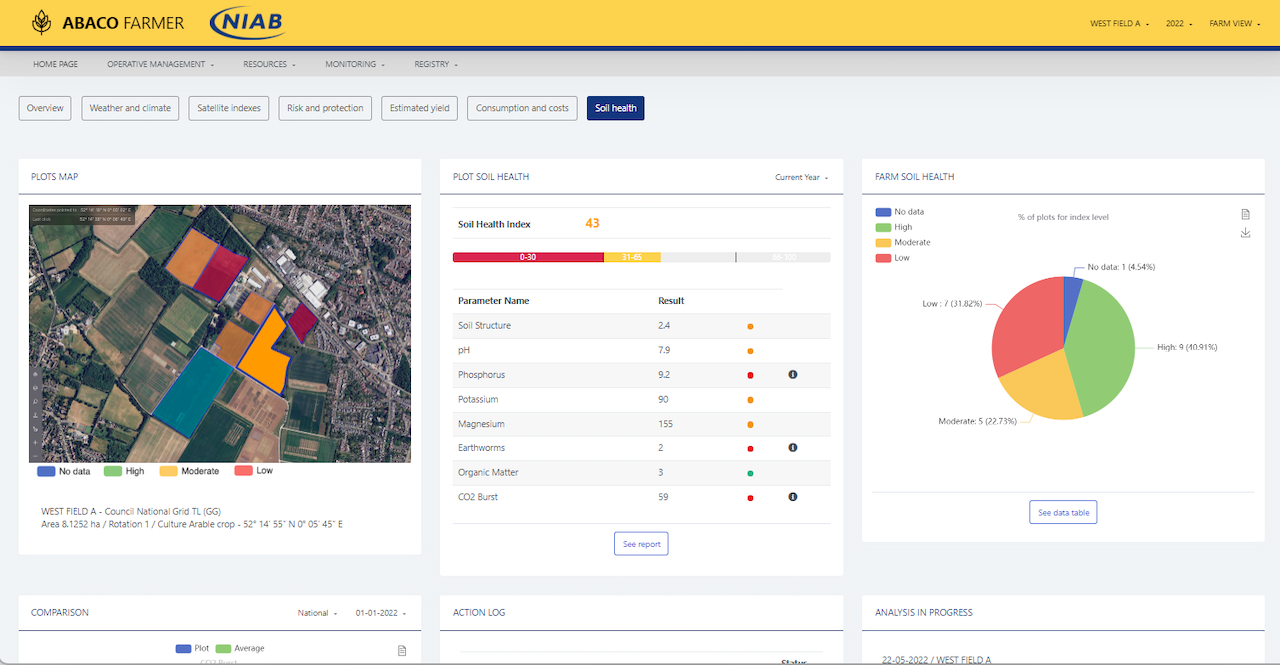Agri-tech company ABACO Group and crop science organization NIAB have partnered with Asda, Tesco and McCain Foods to launch a digital platform designed to support farmers and growers.
A ‘culmination of many years of research’, the digital application aims to help farmers and growers to assess and better manage the health and productivity of UK soils.
Jointly, the organizations say that they are ‘leveraging technology and innovation to improve soil quality, productivity and … sustainability in food production’. “This innovative solution provides a database to record and analyze soil sample results and offers tangible advice to farmers on how to improve the quality of their soil.”
The collaboration has led ABACO and NIAB to develop the Soil Health Scorecard which will be adopted by Asda, Tesco and McCain within their supply chains.
The Scorecard ‘establishes an open, accessible and data-driven solution that supports data collection and benchmarking for soil health’. The application will allow the companies to measure the success of management practices, while offering tailored advice to farmers on improving the health of their soil.
The Scorecard is expected to transform the way farmers approach soil health management
Antonio Samaritini, CEO of ABACO Group, comments: “The Scorecard will allow supply chain partners to fast-track the technology transition in agriculture and innovatively address key issues in food production. Through AI analytics the Scorecard is expected to transform the way farmers approach soil health management, and the collaboration among different players is a significant step toward sustainable and innovative farming practices.”
Chris Brown, senior director of sustainable supply chains at Asda, says: “This platform is the first of its kind and will enable key stakeholders to monitor and improve soil across the UK. We believe it is a step in the right direction towards more sustainable farming practices.”
Natalie Smith, head of agriculture at Tesco, adds: “Soils play a critical role in our natural environment, not just for food production, but for protecting and promoting biodiversity, improving resilience to flood and drought, and reducing our impact on water sources. Through existing initiatives such as the planting of cover crops and herbal leys, we and our supplier partners have made progress in improving soil health, but we need to do more. This innovative new platform will help farmers and the wider food industry monitor and improve the health of our soils, and we’re looking forward to trialling it in our supply chain.”






